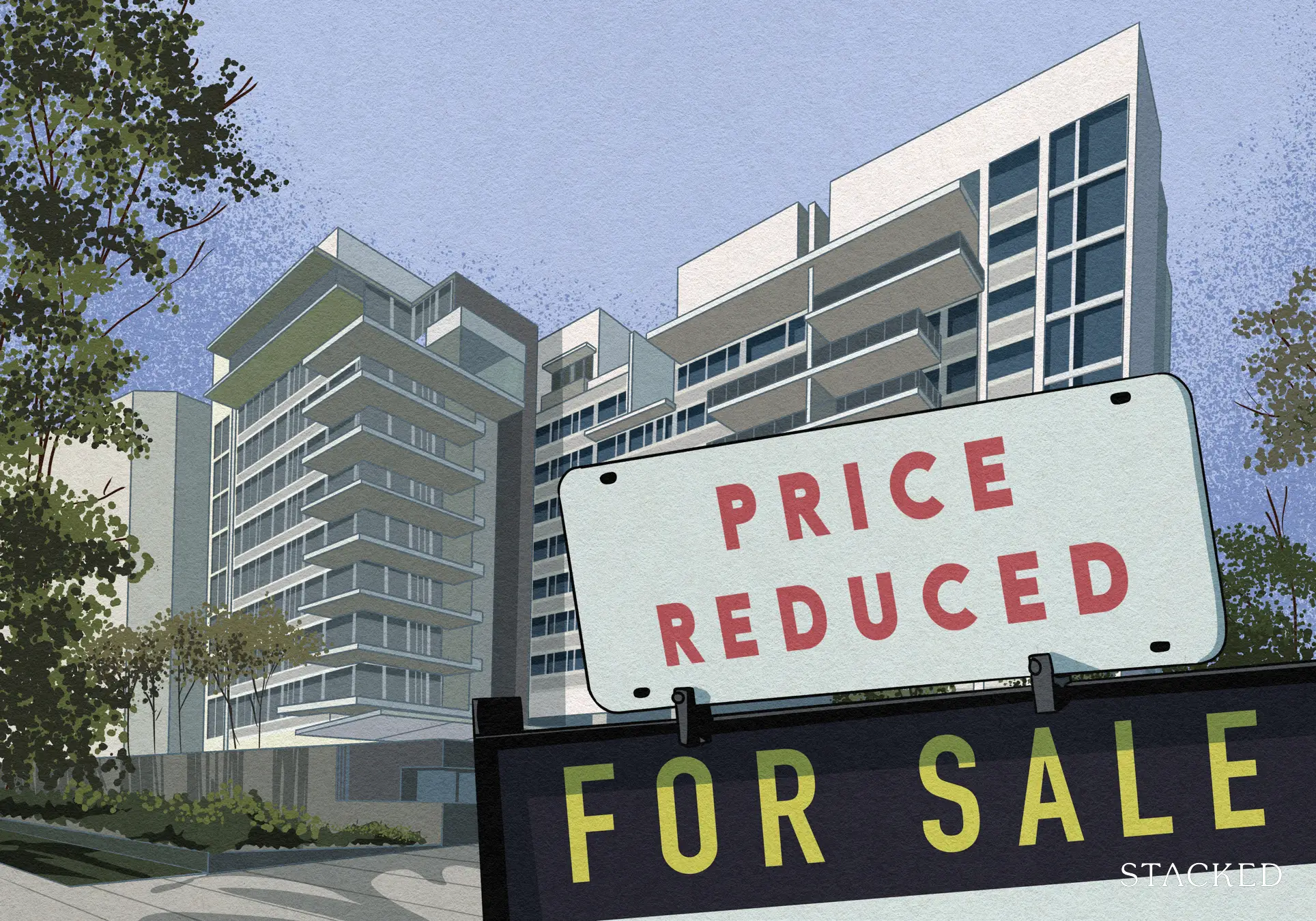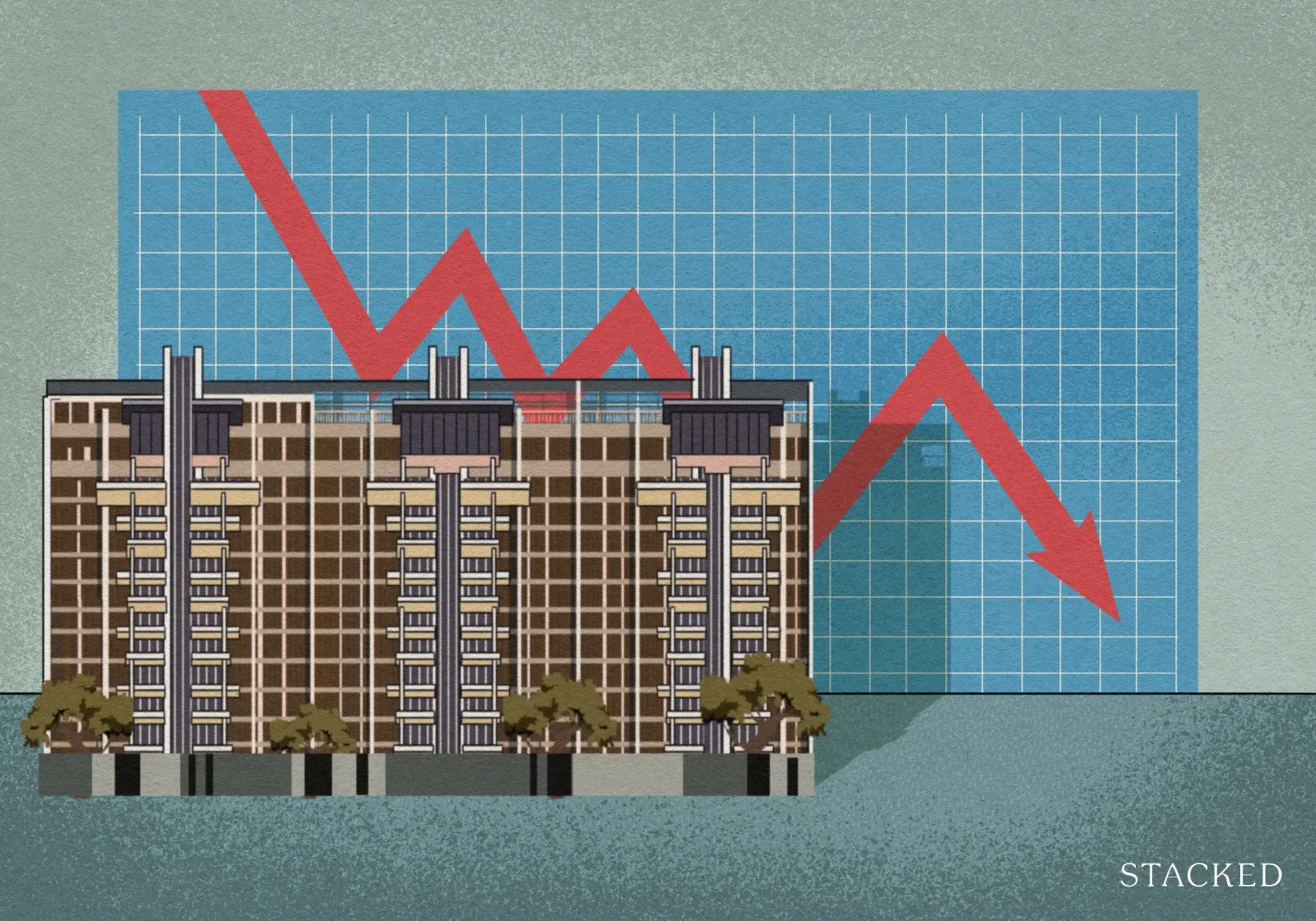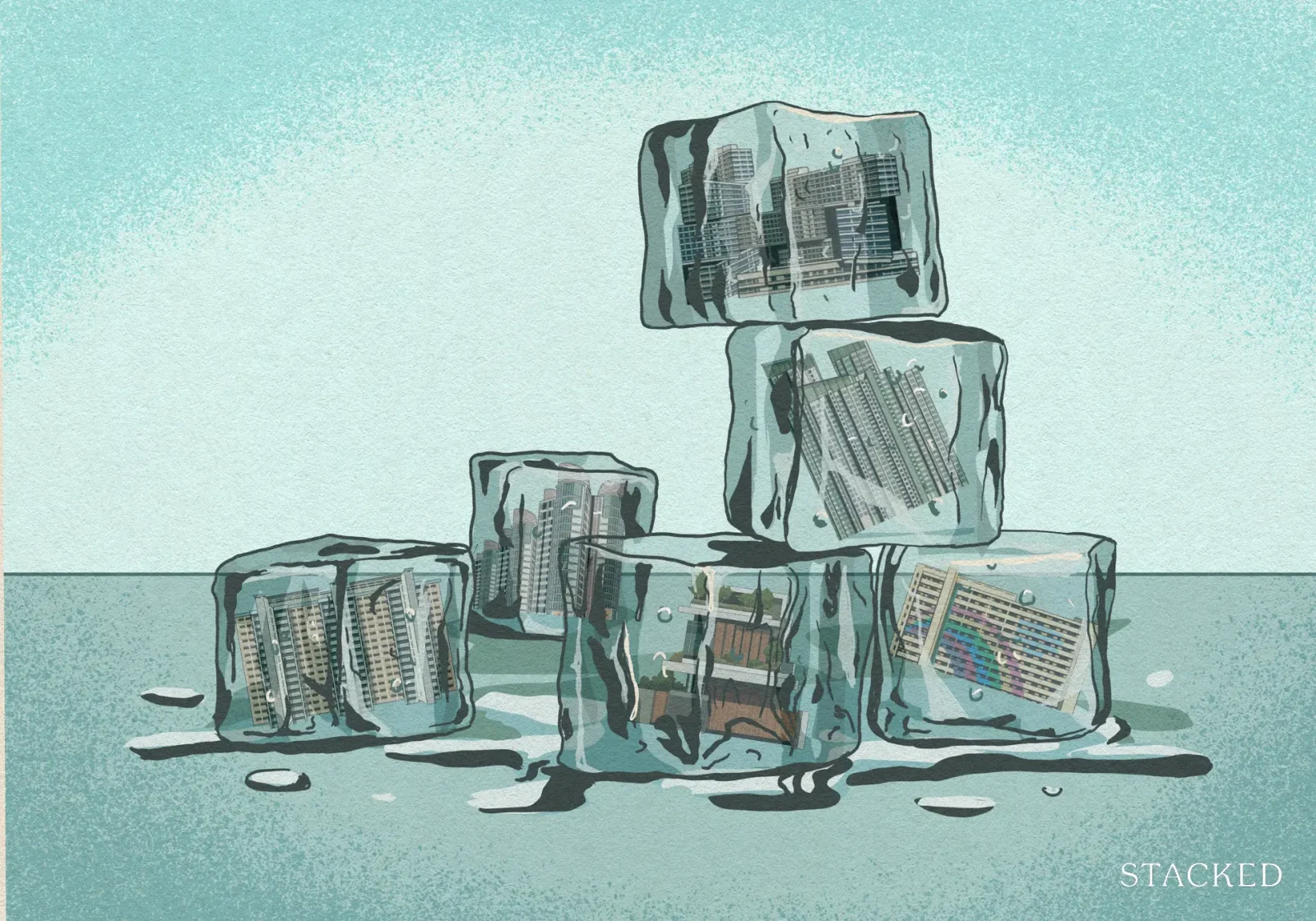Your Property Has Been On The Market For Months Now: When Is The Right Time To Lower Your Price?
May 9, 2024

It’s been months since anyone has given you an offer, and you do need to sell before you can move on to your next property. Is it time to bite the bullet, and lower your asking price? In a time of expensive replacement properties, we understand why so many sellers are hesitant to drop their asking prices – but in the end, making a little less and being able to acquire a more suitable home might be better than no sale at all. Here’s what some agents have to say, about when it’s time to lower your expectations:
So many readers write in because they're unsure what to do next, and don't know who to trust.
If this sounds familiar, we offer structured 1-to-1 consultations where we walk through your finances, goals, and market options objectively.
No obligation. Just clarity.
Learn more here.
1. Lower it to match other listings, even though you’re aiming higher

One realtor, who calls himself M, says a common mistake is to start too high:
“If your unit is priced higher, then some buyers will immediately switch off – they won’t even bother to talk. But if you price at close to other listings, even if you actually want to go higher, at least there’s a chance we can negotiate and try and get more; but sometimes sellers don’t understand this, so they are stubborn about keeping the asking price too high.”
M says one recent example was a two-bedder he transacted in 2023. Initially and against his advice, the seller had set an asking price that was about 20 per cent higher than similar units in the condo.
M says the first two viewers were clearly interested but never got back – likely because they assumed their offer would be rejected anyway. Subsequently, the seller accepted M’s proposal to lower the prices to match the other listings.
Within a month, the condo sold for a price close to the initial asking price, as M was able to negotiate the price upward.
2. It might be worth lowering the price slightly to fit search filters

Most, if not all buyers these days find listings via property portals rather than newspaper classifieds. If you’ve used these, you probably know they have all sorts of filters you can use: you can filter out based leasehold or freehold, filter out certain construction dates, etc. And one of the most commonly used filters is price.
Consider that, if your flat is listed at $505,000, but a user sets the filter to $500,000 or under, your listing could be removed from their view. So it could make sense to knock off the $5,000 to better fit the search system.
(On a related note, if you’re a buyer, you may want to set the filter higher – such as setting it at $550,000 if your budget is $500,000. This is to prevent you from missing out on good listings that are just a tad higher).
3. Lower it based on the age of your listing, compared to similar listings

This is a bit tricky, as you don’t always have an easily comparable listing, especially in smaller developments with fewer transactions. The only other unit listed in your project may be much bigger or smaller, for example, so you may have to compare it to a similar-sized unit in a project that’s nearby. Ideally though, if you’re able to find close comparisons, check out the “listed on” date of the other properties.
M says that If your listing is one of the oldest comparable ones, that may be a sign you need to set a more realistic price. He also notes that an old listing can create certain assumptions among buyers or buyers’ agents – they might assume you’re desperate to sell, and this encourages lowballing among the offers you get.
Some agents keep track of the average days a property stays on the market, for a given property type and area (e.g., they may know that three-bedders in Paya Lebar are listed for an average of 32 days). Their recommendation to lower the price usually comes after a listing exceeds this average. You can discuss this with your agent beforehand, so you’re mentally prepared when it’s time to go lower.
4. Lower it according to a predetermined plan, not gut feel
ST is a realtor who often works with HDB upgraders, and he says a common mistake – especially among those who sell their own flat – is not working out milestones on when to lower the price:
“If they’re (the sellers) working with us, we look at the time frame they have, and from there we can work it out. After two or three weeks if there’s no response, we lower it to a certain amount, after another two or three weeks, we change it again, and so forth.
But if they’re selling without help, they might go by ‘feel’. There’s no systematic approach. This is more stressful and they could make an emotional decision… so they should have a timeline on how to proceed, and then stick to it. Don’t let emotions make the decision.”
ST says the timeline is based on several factors, such as ABSD remission (if they’re buying before they sell), or competition for the replacement property. There isn’t a strict formula but “the shorter your runway”, the quicker you have to be willing to lower the price.
5. Lower the asking price following policy changes

This is a tough call, as it’s hard to be clear when exactly a policy change – such as higher ABSD rates – will bite. There’s certainly an inclination to maintain the price regardless, especially if there have been viewings.
However, if you find that interest drops drastically after the policy tweak (i.e., fewer offers, and fewer people asking to view the unit), it can sometimes be worth lowering the price before things get worse. ST says this was the case for one of his clients during the July 2018 cooling measures.
“The ABSD rate went up, so a lot of prospective buyers decided to wait and see. We had one offer that was a bit under, but the seller still refused. But the longer they waited the worse it actually got, and in the end – because they had to move on with their own purchase – they settled on the next offer which was even lower.
If they had taken the first offer they would have been a lot better off. So sometimes it may be worth tempering your expectations, before matters get worse.”
The best way to price your property is with fresh, on-the-ground knowledge.
While some general theories hold true, nothing beats a realtor who has just transacted a unit in the same project or area. They tend to have relevant insights into the current pool of buyers and sellers, and this is by far the best way to determine your pricing. If you need help on your specific property though, do reach out to us on Stacked.
At Stacked, we like to look beyond the headlines and surface-level numbers, and focus on how things play out in the real world.
If you’d like to discuss how this applies to your own circumstances, you can reach out for a one-to-one consultation here.
And if you simply have a question or want to share a thought, feel free to write to us at stories@stackedhomes.com — we read every message.
Ryan J. Ong
A seasoned content strategist with over 17 years in the real estate and financial journalism sectors, Ryan has built a reputation for transforming complex industry jargon into accessible knowledge. With a track record of writing and editing for leading financial platforms and publications, Ryan's expertise has been recognised across various media outlets. His role as a former content editor for 99.co and a co-host for CNA 938's Open House programme underscores his commitment to providing valuable insights into the property market.Need help with a property decision?
Speak to our team →Read next from Property Advice

Property Advice We Can Buy Two HDBs Today — Is Waiting For An EC A Mistake?

Property Advice I’m 55, Have No Income, And Own A Fully Paid HDB Flat—Can I Still Buy Another One Before Selling?

Property Advice We’re Upgrading From A 5-Room HDB On A Single Income At 43 — Which Condo Is Safer?

Property Advice We’re In Our 50s And Own An Ageing Leasehold Condo And HDB Flat: Is Keeping Both A Mistake?
Latest Posts

Pro This 130-Unit Condo Launched 40% Above Its District — And Prices Struggled To Grow

Property Investment Insights These Freehold Condos Barely Made Money After Nearly 10 Years — Here’s What Went Wrong

Singapore Property News Why Some Singaporean Parents Are Considering Selling Their Flats — For Their Children’s Sake


































0 Comments